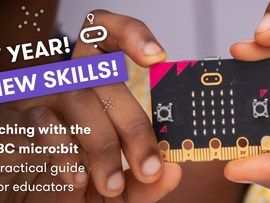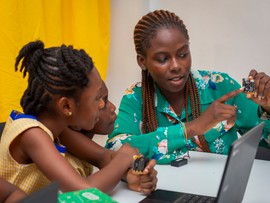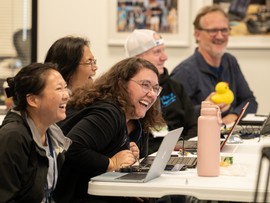Taking digital education into rural areas around the world with the micro:bit
How innovative projects around the world are giving children in remote areas direct experiences with physical computing and coding
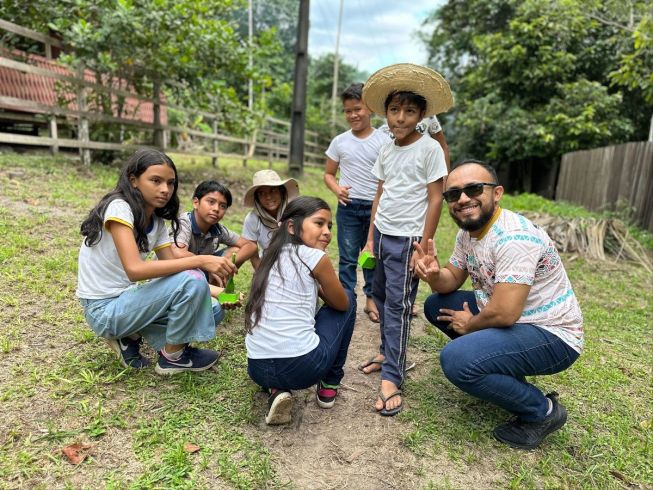
Children in the Amazon River Community with Tiago Cauassa
As we become more interconnected through technology, it becomes more important that children develop an understanding of coding and the digital world. Many global initiatives tackle this first-hand, and whilst coding education has gained traction in urban areas, its significance for children in more rural settings is often overlooked. Here, we explore inspiring projects reaching children in rural areas to narrow the digital divide.
Taking the micro:bit into the Amazon Jungle
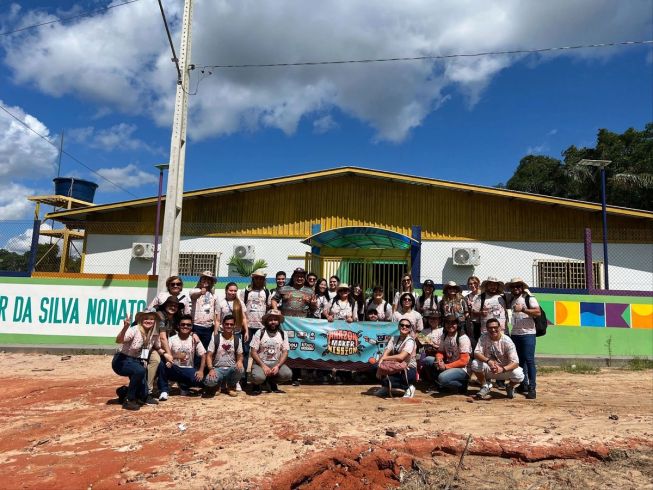
Amazon Maker Mission visits riverside communities in the Amazon Jungle
micro:bit Champion and community lead, Tiago Cauassa, has taken an educational STEAM (Science, Technology, Engineering, Arts and Mathematics) project by ICBEU Manaus, Cultural Institute Brazil & United States, to riverside communities in the Amazon Jungle. The project, in partnership with the United States Embassy in Brazil and the Manaus Secretariat of Education, is empowering students and educators to learn and engage with creativity and technology.
The Amazon Maker Mission, developed by ICBEU Manaus, is a groundbreaking initiative that brings STEAM workshops to communities around the Amazon River. During each visit, the team conduct two workshops for students and one for teachers, all focused on demonstrating the many possibilities of using a micro:bit. The central idea is to show both audiences how they can benefit from this technology.
Through hands-on activities, students explore coding and electronics, while teachers learn how to integrate micro:bit into their lessons. The workshops also cover environmental topics like climate change, biodiversity, and sustainable resource management. This initiative empowers these communities with the tools to innovate and build a sustainable future.
Introducing coding in Jamaica
Calabar Primary & Junior High students from grades 4 to 6 explored coding using their micro:bit devices
In Jamaica, the Grace & Staff Community Development Foundation has launched an "Introduction to Coding Programme" to equip approximately 100 students from underserved communities in Jamaica with the vital skills needed to thrive in today's digital world.

By partnering with the Micro:bit Educational Foundation, we are making a significant investment in the future of Jamaican youth. This programme will not only equip our students with coding skills, but also foster creativity, collaboration, and ethical technology use, impacting their lives and communities positively.

Sandrina Davis, CEO of Grace & Staff.
The six-week initiative targeted students in Majesty Gardens, Dela Vega City and Quarry Hill in St. Catherine, and provided participants with hands-on experience in coding languages like Blocks, Java, and Python. Through lessons in algorithmic thinking, logical reasoning, and problem-solving, the aim is to give students the tools and confidence to actively engage in digital spaces.
Exploring the UN Global Goals in Mongolia
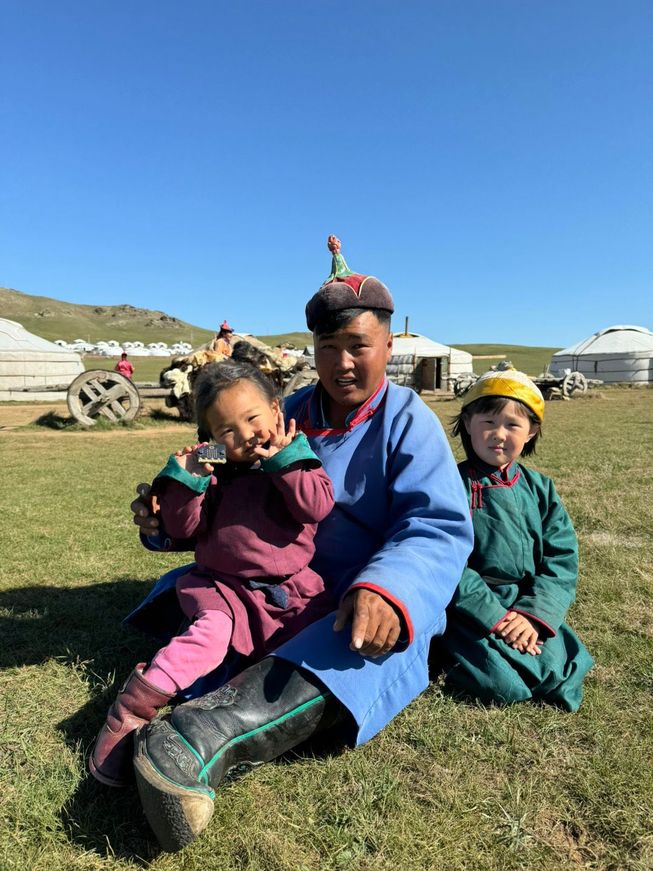
Our Head of Asia Pacific, Waris Candra, recently visited the 75th General School of Capital City, Ulaanbaatar in Mongolia to see how they are using micro:bits in their projects to teach sustainable development goals. The project for the improvement of facilities for Primary and Secondary Education was made possible with Grant Aid from the People of Japan, as a token of friendship and cooperation between Japan and Mongolia.
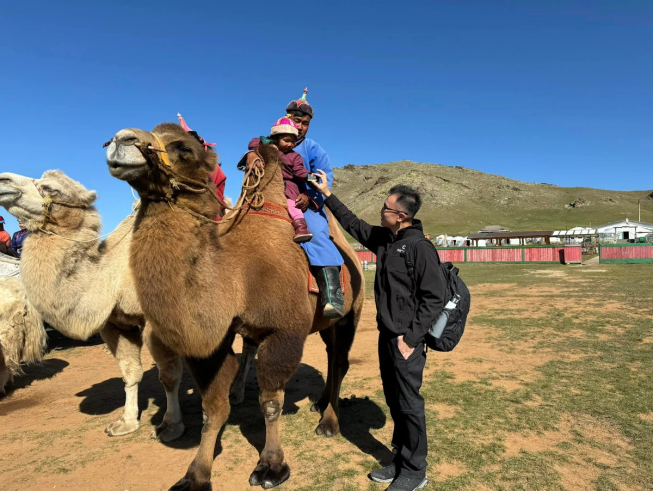
Head of APAC, Waris Candra, visits Mongolia

It was a wonderful opportunity to exchange experiences with teachers and show students how to code micro:bit with MakeCode in this location and to see how they are using technology towards the Sustainable Development Goals.

Waris Candra, Head of APAC at the Micro:bit Educational Foundation.
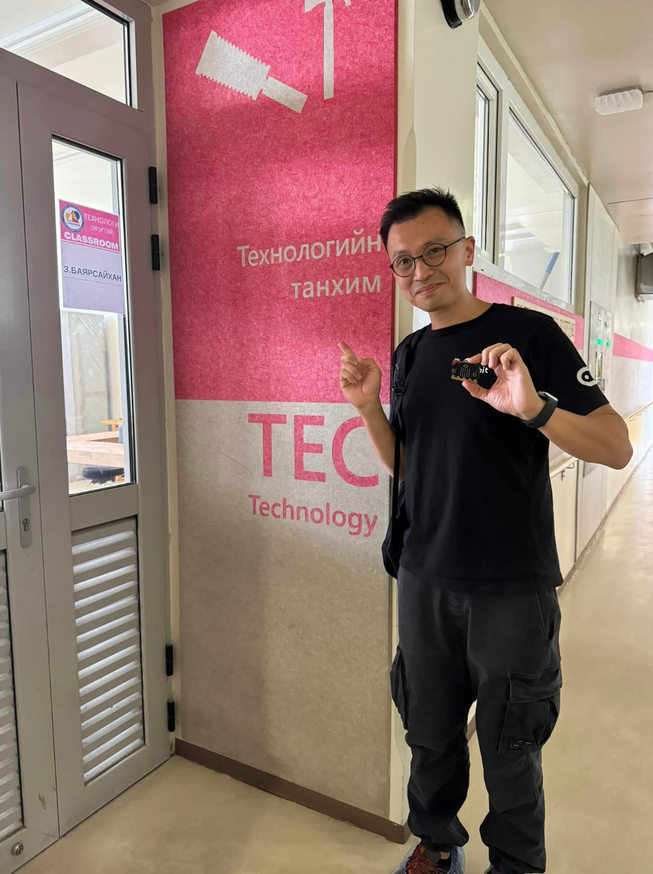
Waris Candra visits the 75th General School of Capital City
Rural communities in Ireland creating local solutions with micro:bit
Our Kids Code attend 2024 Dream Space Showcase
Students from Counties Longford, Meath, Roscommon and Tipperary in Ireland have been busy getting hands-on with micro:bit and designing amazing solutions to problems in their local areas since 2022. Through the Our Kids Code initiative, along with Microsoft Dream Space Ireland and the Department for Rural and Communities, young people have been designing unique solutions to tackle some of the most pressing issues in their rural communities such as protecting clean water sources for farming, animal safety, bee pollination and biodiversity counters.
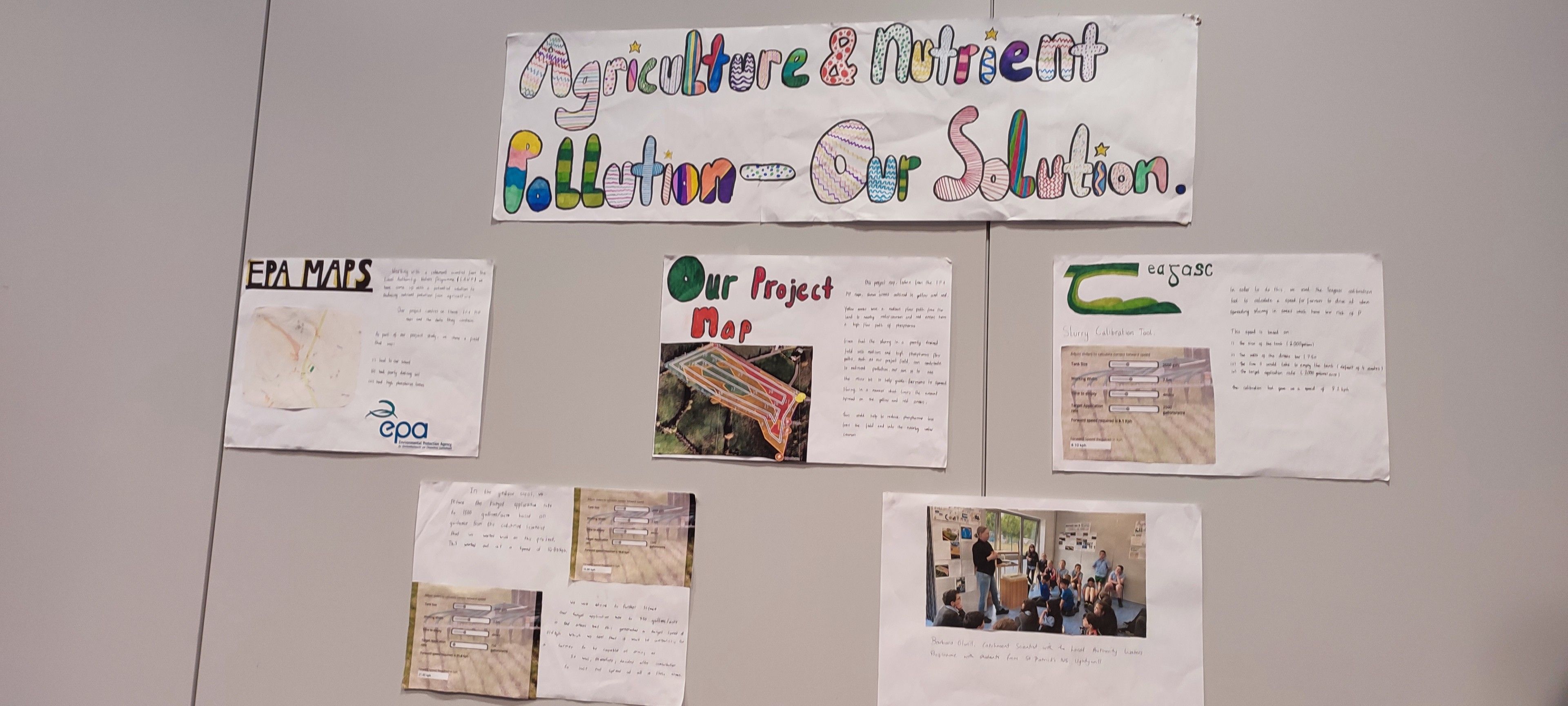
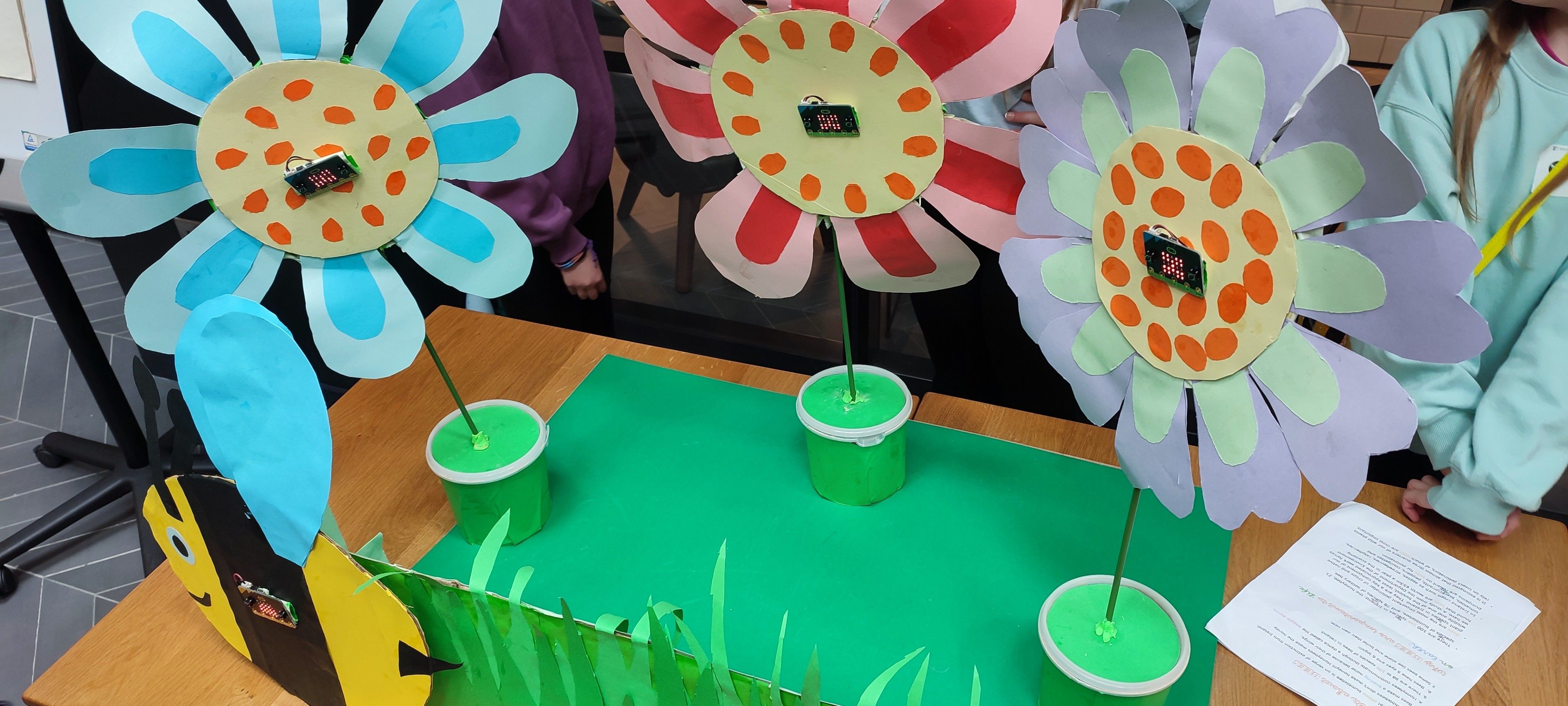
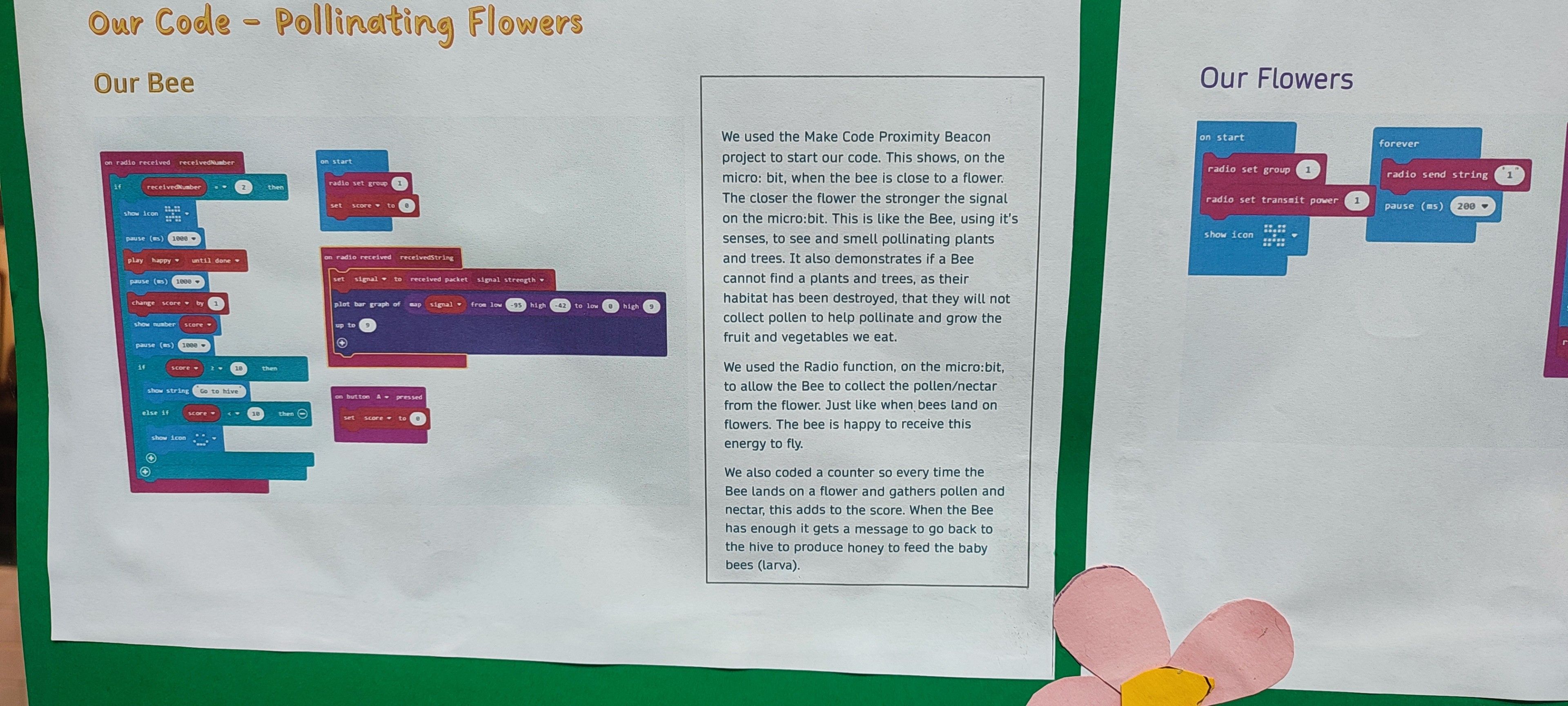
OurKidsCode clubs are run by families in a local venue such as community centres, sports clubs, libraries or in an after-school setting, or community hubs called Broadband connection points (BCPs) which bring high-speed internet connectivity to rural communities. These initiatives are supported by a network of local and national partners with the shared aim to bridge the digital divide between urban and rural communities.
By ensuring that students and their families get access to technology projects, they can harness all of the opportunities for fun, creativity and problem-solving that it has to offer. In this way, the micro:bit is helping young students in these communities think about, and solve, crucial local issues while innovating and embracing the latest technologies – all of which will improve their communities while also helping them take their first steps towards an exciting digital future.
Tinkering On Wheels with the micro:bit in India
"Tinker on Wheels" (TOW) project at the International Startup Festival 2024, held at ESCI, Hyderabad (Sept 26-28, 2024).
Looking ahead to future initiatives, the launch of Tinker On Wheels (TOW) is an ambitious STEM initiative by the Young Tinker Foundation, with the goal of reaching 1 million students in India by 2026. TOW is an AI-powered mobile learning lab that brings the future of education directly to students. By providing hands-on experience with cutting-edge technologies, they aim to bridge the digital divide and empower students, especially those in underserved communities. Starting in Odisha, India, we can’t wait to see technology going straight to the classrooms via the mobile learning lab!
Share your projects

Through partnerships like these, children in rural and underserved communities around the world are benefitting from learning with micro:bit and - importantly - in ways that are relevant to them. This localised, targeted approach is a core component of our mission to inspire every child to create their best digital future.

Melanie Washington, Global Partnerships Director, Micro:bit Educational Foundation
The examples above are only a small snapshot of the many innovative ways educators across the globe are using micro:bits and technology to support underserved communities - if you have a project or initiative we’d love to hear about them.
Get in touch with us to share your stories:
